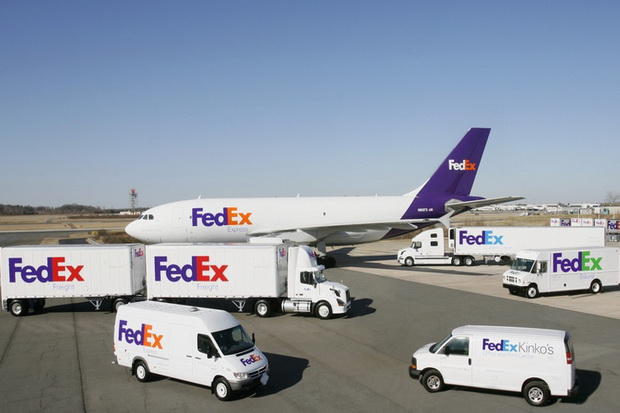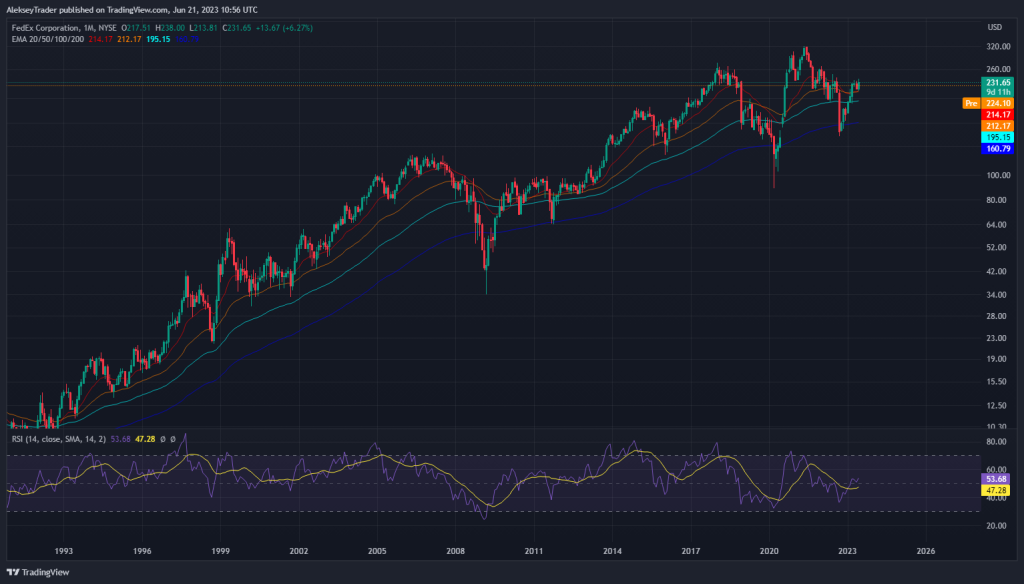
FedEx, a global leader in shipping and logistics, recently released its fiscal fourth-quarter results, providing insights into the company’s financial performance. The report showcased a mixed picture, with positive developments in earnings but a revenue miss compared to Wall Street estimates.
In terms of earnings, FedEx reported adjusted earnings per share (EPS) of $4.94, surpassing analysts’ expectations. This indicates effective cost management and operational efficiency within the company. However, revenue came in at $21.90 billion, falling short of the projected $22.59 billion. The revenue miss can be attributed to ongoing weakness in demand, potentially influenced by the challenging economic environment and the global pandemic.
Operating margin, a key indicator of profitability, declined from 8.9% to 6.9% compared to the previous year. The decrease can be attributed to several factors, including lower shipment volumes, increased costs associated with fuel prices, and investments in technology and infrastructure. The company acknowledged the impact of these challenges on its financial results.
Looking ahead to 2024, FedEx provided guidance on its future performance. The company expects adjusted EPS in the range of $15.00 to $17.00, excluding accounting adjustments related to retirement plans. After considering these adjustments, the projected EPS range stands at $16.50 to $18.50. This guidance reflects the company’s optimism and its commitment to delivering sustainable growth.
To drive efficiency and achieve its financial goals, FedEx outlined its cost-saving initiatives. The company aims to realize $1.8 billion in cost savings by 2024 through various measures, including streamlining operations, optimizing network utilization, and investing in technology-driven solutions. These efforts align with FedEx’s commitment to enhancing operational efficiency and maintaining its competitive edge in the industry.
In addition to financial metrics, FedEx highlighted its progress in strategic initiatives. The company emphasized its plan to transition its ground operations and personnel in Canada to Federal Express Canada, starting in April 2024. This move is expected to improve service quality, increase efficiency, and further integrate FedEx’s operations in the Canadian market.
Furthermore, FedEx announced the retirement of its Chief Financial Officer (CFO), Mike Lenz, at the end of July. Lenz has played a crucial role in the company’s financial management and strategic decision-making. The retirement presents an opportunity for a new CFO to contribute fresh perspectives and insights to the company’s future direction.
Analysts’ reactions to the quarterly report varied. While some adjusted their price targets downward, they maintained a positive outlook on FedEx stock. Bank of America (BofA) analysts lowered their price target to $290 per share but retained a “Buy” rating, recognizing FedEx’s progress in improving profit margins.
Citigroup (Citi) analysts also reiterated their “Buy” rating, acknowledging the challenges faced by the company while highlighting potential growth opportunities.
In conclusion, FedEx’s fiscal fourth-quarter results revealed a mixed performance, with strong earnings but a revenue miss. The company remains focused on cost management, operational efficiency, and strategic initiatives to navigate the challenging market conditions. With guidance for future performance and cost-saving initiatives in place, FedEx aims to position itself for sustainable growth and deliver value to its shareholders. The retirement of the CFO presents an opportunity for new leadership to contribute to the company’s success in the coming years.





